
With excellent quality, its special features and its rich taste as the allies, internationally renown Greek honey is seeking a worthy position.
Greek honey holds a special place in the Mediterranean diet and has gained international recognition, due to its particular qualitative characteristics, which have contributed to the development of beekeeping conditions, as well as the rich and quality bee favored flora of Greece.
However, an important inhibitory factor in the take -off of Greek exports is its high price, due to high production costs.
In order for the Greek honey to become extroverted and gain the position it deserves in the international market, deep incisions and corrective movements are required, with the enhancement of production, the establishment of the Greek PDO, the emergence of the name of origin.
Apiculture in numbers
According to the Ministry of Environment and Physical Planning, Greece has 10.8% of the EU’s hives with 73% being professional beekeepers (holding at least 150 hives).
At the same time, according to Eurostat, Greek honey production is 1% of the world and 7.4% of European (fourth place) with 16,000 tons.
Beekeeping is constantly increasing in the EU, in the total number of beekeepers and professional beekeepers and the total number of hives, because it is considered profitable.
However, according to Hellenic Statistical Authority-ELSTAT’s latest census, with data on 2020, beekeeping farms are reduced, while the number of hives is marginally increased.
Specifically, in 2009 beekeeping farms were 10,551 and in 2020 reached 8,704 reduced by 17.5%, while the corresponding number of hives was 944,014 in 2009 and in 2020 reached 952,963 increased by 0.9%.
Exports in 2021
However, Greece is a predominantly beekeeping country with a tradition of beekeeping from ancient times, with Kavala, Halkidiki, Evia, Peloponnese, Crete and the Aegean islands being considered main beekeeping areas.
In Greece, honey is collected by 90% φρομ wild ecosystems and not from mono -human crops (as is the case with honey from other countries) while there are no genetically modified plant crops. 2/3 of the Greek honey produced are tree honey (pine 55% – 60%, fir 5% – 10%) and 1/3 is flower honey (10%thyme, orange 10%).
According to the latest available data, in 2021, more than 6.3 million honey was exported from Greece to international markets, with their value, according to Eurostat data, amounting to € 25.8 million, which is € 25.8 million, and their average price is 4.07 euros per kilo.
The “champion” in the imports of Greek honey is Italy, with the neighboring country importing 1,441,659 kg of Greek honey worth a total of € 3,796,335 euros. Following is Germany with 1,305,679 kg of honey, worth € 5,734,964 and France with 420,214 kg worth € 2,013,528.
Imports …
Europe is about 60% self -sufficient in honey consumption. According to FAO, European production decreased by 16% between 2015 and 2020 (from 257,000 to 218,000 tons), while the number of hives increased by 16% (from 17,189,000 to 20,046,000 in 2016-2021) .
In particular, a total of about 250,000 tons of honey is produced in the EU each year, while the corresponding quantity sold within its borders is about 450,000 tonnes. This means that all EU countries are self -sufficient in honey by less than 60%. The 200,000 tons of honey that are not available are imported each year from countries outside the EU.
In 2021, according to Eurostat figures, the European market imported larger quantities of honey than countries outside the EU, Ukraine and China.
Specifically, in 2021, EU Member States imported 173,400 tons of honey from € 405.9 million from out of EU countries, while in the same period, only 25,500 tonnes were exported by EU Member States. These exports amounted to 146.6 million EUR 6 million.
Compared to 2016, imports of honey from outside EU countries increased by 7%, while EU exports to outside EU countries decreased by 10%.
Imports of honey from non -EU countries in 2021 came mainly from Ukraine (53,800 tons, or 31% of total honey imports outside the EU), followed by China (48,000 tonnes, 28%), Mexico (15,500 tonnes, 9% ), Argentina (14,400 tonnes, 8%) and Brazil (7,900 tonnes, 5%).
Adulteration
The European Commission ranks honey as the sixth in a row that is vulnerable to practice adulteration or fraudulent practices.
Honey adulteration is an economic fraud and misleading to the consumer, as the distorted product lacks the beneficial properties of real honey.
The most common misleading practices are the false statement of botanical origin (i.e. calling thyme a flower) or geographical origin (labeling imported honey as Greek) while the most common fraud is the addition of exogenous sugars (eg isoglykose).
Latest News

EasyJet Expands Its Routes from Athens
The airline’s two new routes will be to London Luton and Alicante and they will commence in summer 2025.

Capital Link Forum Highlights Greece’s Economic Resurgence; Honors BoG Gov Stournaras
Capital Link Hellenic Leadership Award recipient, Bank of Greece Gov. Yannis Stournaras, an ex-FinMin, was lauded for his pivotal role during Greece’s economic recovery

Tourist Spending in Greece Up by 14%, Visa Card Analysis Shows
Greece’s capital Athens emerged as the most popular destination, recording a 17% increase in transactions with Visa cards, surpassing even the cosmopolitan island of Mykonos.

Inflation in Greece Unchanged at 2.4% in Nov. 2024
The general consumer price index (CPI) posted a 0.4% decrease in November compared to the previous month

2024 Christmas Holidays: Extended Shop Hours Schedule
The 2024 Christmas Holidays extended shop hours schedule commences on Thursday, December 12 and runs until the end of the year.

ELSTAT: Seasonally Adjusted Unemployment Down in October
The number of employed individuals reached 4,284,694, an increase of 67,723 compared to October 2023 (+1.6%) and 22,002 compared to September 2024 (+0.5%).

Greek PM’s Chief Economic Adviser Resigns
In the post on his Facebook page, Patelis did not disclose the reasons that led him to step down.

“Masdar Invests in the people of Greece and in the vision of TERNA ENERGY”
Four messages from the CEO of Masdar, the Arab renewable energy giant, after its acquisition of 70% of TERNA ENERGY

Lloyd’s List Greek Shipping Awards 2024: Honors for leading companies and personalities in the Greek shipping sector
20 awards presented at the 21st annual Lloyd's List Greek Shipping Awards

Syria’s Bashar al-Assad, His family Granted Asylum by Russia
Reuters also reported that a deal has been struck to ensure the safety of Russian military bases in the war-ravaged country

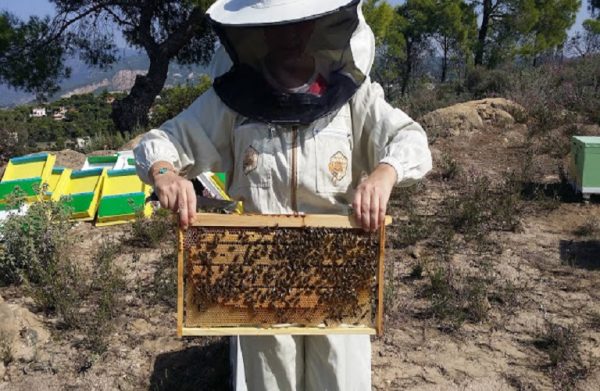
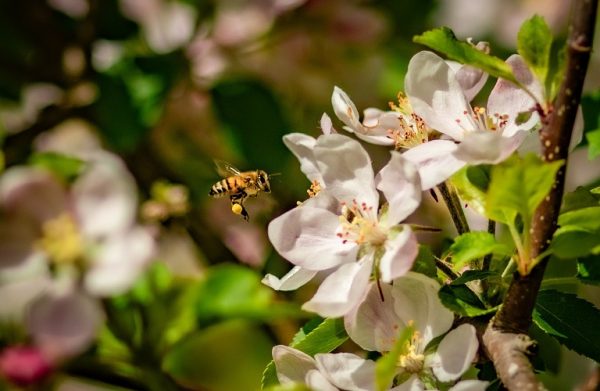
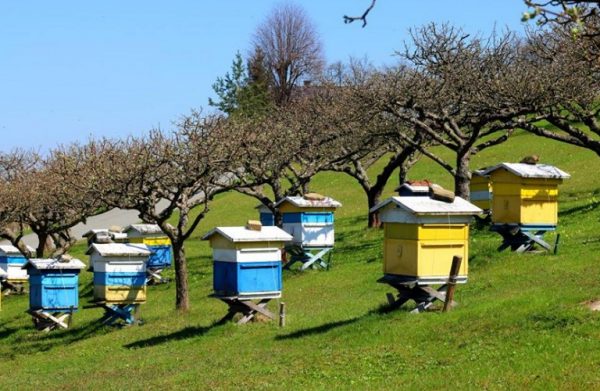
















![Χειμερινή εξοχική κατοικία: Οι Ελληνες γυρνούν την πλάτη παρά την πτώση των τιμών [γραφήματα]](https://www.ot.gr/wp-content/uploads/2024/12/Capture-19-90x90.jpg)








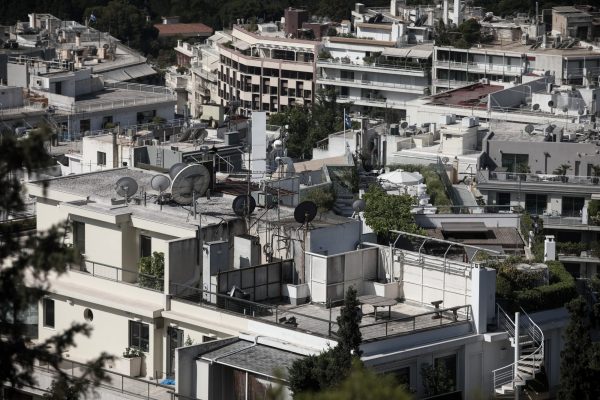





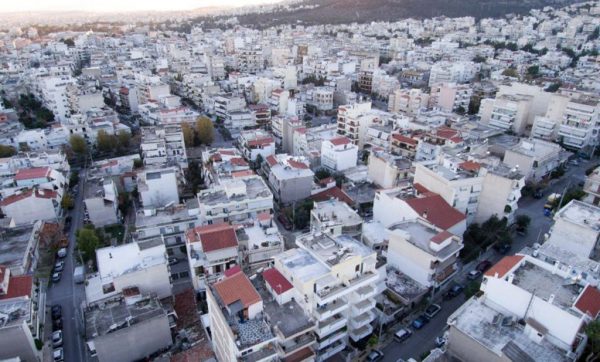









 Αριθμός Πιστοποίησης Μ.Η.Τ.232433
Αριθμός Πιστοποίησης Μ.Η.Τ.232433